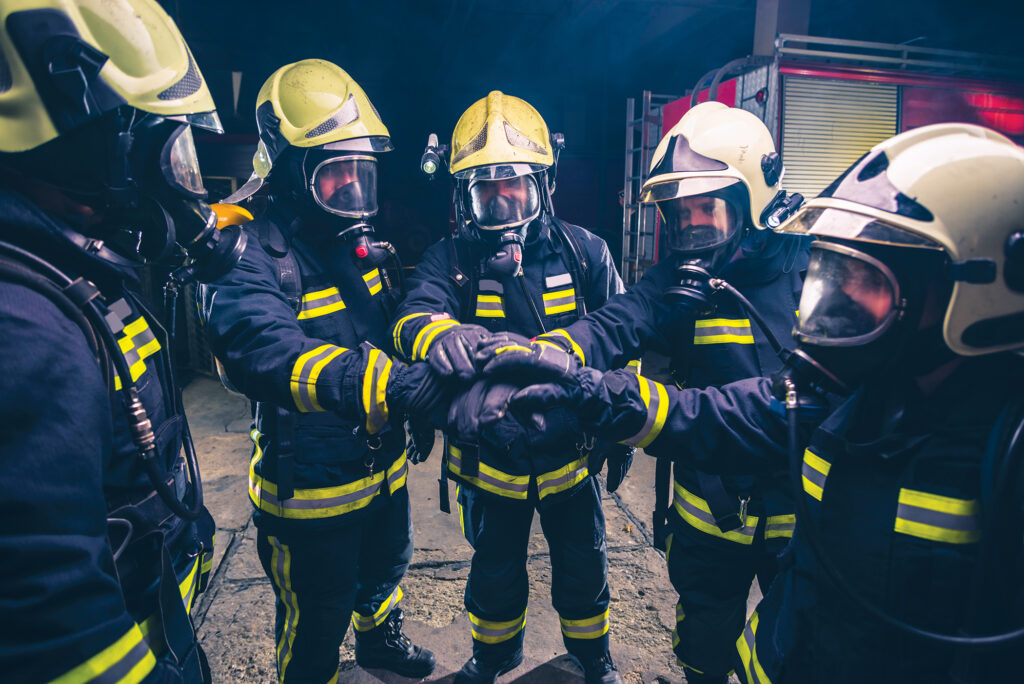
From Hire to Retire: How to build resilient teams
By Arjuna George
Features Leadership canadian firefighter firefighter training leadership wellness Photo credit: Qunica.Com / Adobe Stock
Photo credit: Qunica.Com / Adobe Stock Teams are the backbone of many organizations, especially the fire service. As any team leader knows, forming a group is easy, but building a strong and resilient team is a difficult task. It takes time, energy and commitment from all members—not to mention that it’s not always easy to know where to start when building a resilient team.
First, what is the definition of resilience? Merriam-Webster defines it as “an ability to recover from or adjust easily to misfortune or change.” My view on resilience is the ability to withstand disruption and recover and grow from the experience each time.
Building a resilient team is no small task. It takes work and dedication from everyone involved—but the payoff is worth it.
In this article, we’ll be exploring six critical steps you can take to build a resilient team.
-
Resilient self
For any team to function at a high level, everyone must consider self-care as the number one rule and foundation of forming and growing their high-performance team. The culture of well-being and selfcare must be evident and supported first. Team cohesion will be challenging without the individuals laying the foundation for resilience.
-
Team safety
As firefighters learn to become increasingly resilient, the next stage is to create a work environment that brews safety. As first responders, we already have an abundance of unsafe work environments; why let the fire station be another unsafe zone? This stage is critical to all the following steps and can only be achieved authentically. We should strive to build a psychologically safe fire station where all members know they will not be reprimanded or embarrassed for speaking up with suggestions, ideas or concerns. Once this culture is created, the following steps to team effectiveness are easier to foster.
-
Build trust within the team
Trust is the third step to building a resilient team that can withstand and excel during turbulent times. Trust is built by being honest and transparent with each other, being consistent in your actions and words and not letting others down. You must also be loyal to the team and all of its members, who will be there for you when times get tough.
Transparency and authentic communication help to build trust because it allows everyone to see what’s going on without having to ask questions or look for hidden agendas—which gives them confidence that they can rely on one another during difficult times.
-
Establish an effective communication strategy
If you investigate why teams fail, you will often see communication as one of the root causes. Communication is vital to a resilient team. We must respectfully communicate with each other and break down the silos of information within. The more information that flows from top to bottom and bottom to top, the better decisions and trust will be created.
We spend countless hours pulling hoses and forcing doors but need more time training on communicating with each other. If we know it’s a weak link in our team’s health, why do we not focus more on sharpening that skill set?
You must also be loyal to the team and its members, who will be there for you when times get tough.
-
Embrace change, even when it’s scary
It’s important to remember that change can be scary, but it can also be exciting. When you embrace the idea that change is inevitable, you’ll be able to think about it more positively and use it as an opportunity for improvement. Try not to let it overwhelm yourself or others on your team—instead, look at it as an opportunity for growth.
-
Be compassionate with one another
Being compassionate with each another is an integral part of building resilient teams. No one truly knows how other people are feeling or what crisis they are currently in. Treat everyone like they are doing their best based on their lived experiences. Compassion is the ability to understand someone else’s situation, feel what they feel and care about them as human beings. As firefighters, we do this daily with our patients; we show unwavering empathy for their current situation. It also includes being kind and understanding in difficult situations, which can help build trust within a team and strengthen relationships between members.
Resilient teams can withstand the storms of adversity, but like all humans, teams will have dysfunctional periods and high-functioning times. It is a process of flowing between those two states that is normal. Building a resilient team is crucial to the success of any organization. By focusing on self-care, safety, trust, communication and support, you can create a team that can adapt and recover from setbacks and continue moving forward together.
Arjuna George retired as a fire chief in November of 2021 after serving the department in Salt Spring Island, B.C., since 1997. He is now a fire service coach and consultant. Visit silverarrowco.com or email arjuna@silverarrowco.com.
Print this page
Advertisement
- West Kootenay fire halls host first ever recruitment open houses
- Classic Fire + Life Safety expands in Western Canada with new partnerships